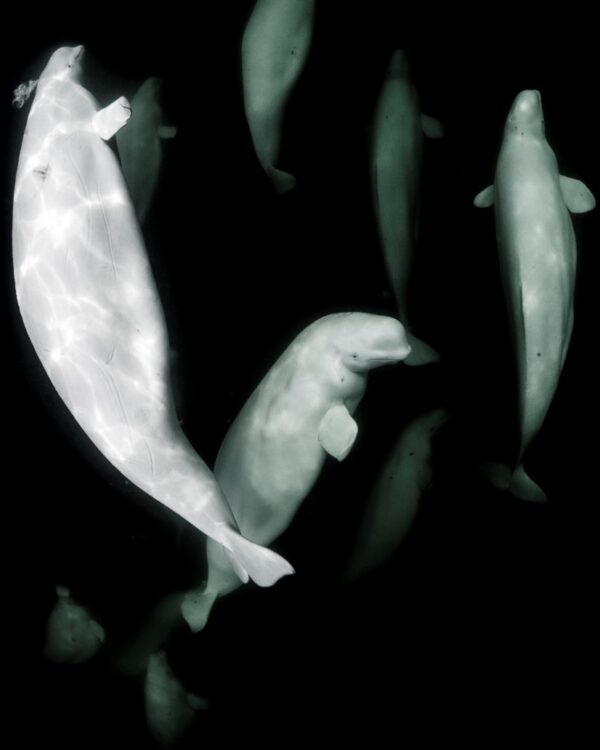In a recently published paper titled ‘Narwhal, beluga and bowhead whale responses to marine vessel traffic: A systematic map’ researchers looked at interactions between increases in marine vessel traffic and how Arctic whales respond to marine vessels and vessel-associated activities.
Exposure to human activity
Arctic whales (bowhead, narwhal, and beluga) have historically been shielded from human activities due to their remote habitats. However, with growing frequency of ships passing through arctic waters and increasing ice-free waters, the Arctic sea is becoming ever more accessible to human activities, resulting in marine life being more exposed to human impacts.
A systematic review of existing literature (169 sources) revealed limited knowledge on how these whales respond to such activities, with disparities across species, subpopulations, and vessel types. As vessel traffic, including cruise ships and fishing vessels, increases, there is a pressing need for more research to inform effective conservation and management strategies for these vulnerable and valuable species.
Credit: Ellen Cuylaerts / Ocean Image Bank
Species disparities
Researchers mapped the ranges of Arctic cetaceans (narwhal, bowhead whale, and beluga) and categorized vessel-related studies by species and subpopulation. Narwhal and bowhead whale distributions were mapped using existing shapefiles, while beluga data was provided by the Norwegian Polar Institute. The review unique data records predominantly focusing on Canada and the USA. Vessel traffic data from 2019 was used to analyse overlap with cetacean ranges. The study revealed disparities in research volume across species and subpopulations, with belugas being the most studied, especially in heavily trafficked areas.
Lead research, E. Hague told the High North News “We know from studies elsewhere that vessels can pose a risk to marine mammals (for example, through collision risk, or alteration of the underwater soundscape), so it’s likely Arctic whales will be affected by vessel traffic, too. By gathering knowledge on the impact of marine traffic on Arctic whales, we can hopefully mitigate the impacts of increasing Arctic traffic”
Recommendations
The report recommends focusing research on understudied Arctic whale species, subpopulations, and vessel types. It highlights the need for empirical studies over predictive ones to better understand the impact of increasing Arctic vessel traffic, especially on lesser-studied vessels like cruise ships and fishing boats. A holistic approach to studying vessel-related stressors, beyond just noise pollution, is advised. Collaboration with Indigenous communities is crucial for robust data collection. Finally, the report advocates for proactive and adaptive management measures to mitigate the impacts of maritime activities on Arctic whales, considering their trans-boundary nature.
Read the open access paper here, read the full interview with the researchers here
